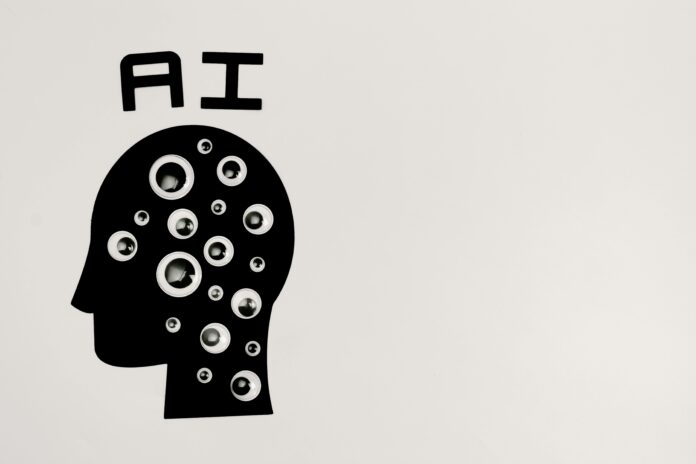Hidden crisis in AI Boom:
An article in Storage Newsletter warns of an emerging memory capacity and data movement bottleneck as worldwide deployment of AI grows. The online publication, which provides daily news for the data storage industry, cites a March 7 EETimes Europe report that traditional memory architectures—especially DRAM—are failing to keep pace with today’s AI demands, consuming more than 30 percent of data-center power while limiting performance scalability and efficiency. While AI is projected to contribute more than $4 trillion annually to the global economy—with U.S. companies leading advancements across healthcare, manufacturing, finance, and beyond—these gains come at a cost, the newsletter states. Modern AI workloads are exceptionally data-hungry and latency-sensitive and traditional DRAM and NAND-based systems can no longer keep up with the volume and velocity of data needed for AI model training and inference, it says. Latency, I/O bottlenecks, and server resource constraints are inflating costs and energy consumption while slowing time-to-insight. With AI workloads poised to account for up to 9 percent of U.S. data center electricity demand by 2030, improving energy efficiency is no longer optional—it’s a necessity for sustainable AI deployment.
The newsletter quotes Hao Zhong, CEO of ScaleFlux, a technology firm that develops systems and software for the data pipeline to enhance storage and memory subsystems, who insists that memory and storage will play an increasingly strategic role as AI reshapes nearly every industry. Zhong contends that organizations that cling to conventional infrastructure face rising costs, energy constraints, and performance ceilings, while those that rethink the data layer will lead. “Every major AI breakthrough—from large language models to edge inferencing—depends on fast, intelligent data movement. What’s needed isn’t just faster chips—it’s a smarter foundation. AI’s future won’t be built on faster chips alone—it depends on smarter infrastructure that rethinks how data flows,” he is quoted as saying.
AI & the fitness industry
As AI continues its march across industries, fitness professionals report a growing buzz around virtual trainers, biometric feedback apps, and machine-learning-based workout plans. Manning Sumner, founder of Legacy Gym in South Florida, advises consumers not to “trade personalization” for the “convenience” of technology. Legacy Gym takes pride in its holistic approach to health and wellness. New fitness technologies promise speed and scalability, but the future lies in proven systems that combine science with soul, Sumner contends. What today’s consumer actually needs, he says, are structure, community, and real-time accountability. He acknowledges that AI adds value but notes that it also falls short in fitness. He insists that relationship-based training produces more consistent, sustainable results. The proof, he says, lies in the fact that gyms with proven methods like Legacy’s Partner Interval Training (P.I.T.), system (which pairs individuals who work out together, motivating each other and performing strength training exercises and high-intensity cardio movements) are outperforming tech-only solutions.
Jobs AI will replace
There’s no doubt that AI is reshaping job security, skills priorities, and career plans. The “Jobs AI Will Replace Report” from LiveCareerUK, a resume builder service, outlines the 10 professions most likely to be displaced by AI and offers guidance on resilient career paths workers can pivot to instead.
- Data entry clerks. Reskill in data analysis or data management; learn Excel, SQL, or Python to shift into roles that interpret and act on data, not just record it.
- Telemarketers. Reskill in digital marketing or customer success; build skills in CRM tools, social media engagement, and sales strategy to stay valuable in a human-centered sales role.
- Basic customer service representatives. Reskill in technical support or customer success; focus on more complex problem-solving roles that require empathy, expertise, and relationship building.
- Retail cashiers. Reskill in retail management or supply chain operations; move into areas that require strategic thinking, leadership, or technical know-how in the retail ecosystem.
- Proofreaders and copyeditors. Reskill in content strategy or digital marketing. Leverage your writing instincts in higher-order tasks like brand storytelling, SEO, and campaign planning.
- Paralegals and legal assistants. Reskill in legal tech, compliance, or litigation support; apply your legal knowledge in tech-forward fields that blend law with AI and automation tools.
- Bookkeepers. Reskill in financial analysis or advisory roles; move beyond basic number crunching to deliver strategic insights that businesses can act on.
- Fast food and restaurant frontline workers. Reskill in culinary innovation or restaurant management. Creativity, leadership, and operations knowledge will always be in demand, even if robots flip the burgers.
- Warehouse workers.Reskill in logistics coordination or warehouse technology roles; learn to operate, oversee, or improve the systems that are replacing repetitive labor.
- Entry-level market research analysts. Reskill in business analytics or data storytelling; go beyond data collection by learning to turn insights into decisions with tools like Tableau, Power BI, or Python.
Managers are using AI to determine who gets promoted and fired
Resume Builder, a resource for professional resume templates and career advice, in June surveyed 1,342 U.S. managers with direct reports. Among the findings:
- 6 in 10 managers rely on AI to make decisions about their direct reports;
- 78 percent of these managers use AI to determine raises; 77 percent to determine promotions; 66 percent to determine layoffs; and 64 percent to determine terminations;
- More than 1 in 5 frequently let AI make final decisions without human input;
- Two-thirds of managers using AI to manage employees have received no formal AI training;
- Nearly half of managers were tasked with assessing if AI can replace their reports.
The survey also found that 94 percent of AI-using managers rely on it to make employee-related decisions. Popular tools include ChatGPT, Microsoft’s Copilot, and Google’s Gemini. In addition to performance assessments and development planning, nearly half of AI-using managers say they use these tools often or all the time to guide decisions related to compensation and employment status.








